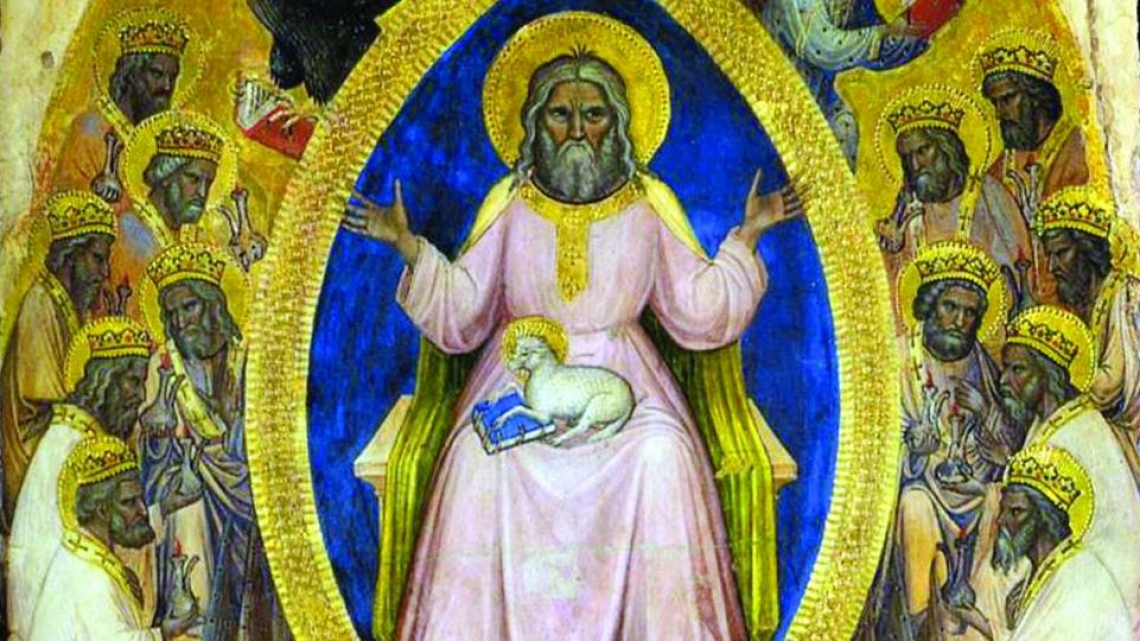The Nicene Creed - Part 3

I Believe in One God
“Hear, O Israel! The Lord is our God, the Lord alone!” – Deuteronomy 6:4
From very early in its experience, the people of Israel came to believe that the God they worshipped, the Lord, was not merely one god among many, or even the main god or the most powerful one. The Lord, they learned, is the only God. The Lord is One. There is no other god. Israel believed this, even though it was never politically dominant in the Middle East, and despite the fact that other nations, who believed in other gods, appeared to be more powerful or influential. The experience of the Exodus, when the Lord saved Israel from slavery in Egypt, was enough to show Israel this truth. The Lord revealed Himself as the One God by coming to Israel in its weakness and slavery, leading Israel to freedom, and commanding Israel to show the same mercy to the weak and vulnerable as He showed Israel when it was weak and vulnerable in Egypt. The people of Israel were to do for others what the One Lord had done for them.
The Hebrew Scriptures are very honest. They show how many in Israel did not always believe this. Many were tempted to follow the gods of other nations, nations that seemed to be more prosperous or militarily powerful than they. As the prophets pointed out again and again, the signs that some in Israel had fallen into this temptation were clear: Israel became divided, the poor and vulnerable were oppressed and exploited, and other covenants, such as marriage, were often violated. All of these were seen as serious violations of Israel’s covenant with the Lord and as ignoring the lessons of the Exodus. As God revealed His Oneness and holiness by freeing vulnerable Israel from slavery, Israel was to reveal God’s Oneness and holiness by treating the weak and vulnerable among them in the same way. Thus, the Hebrew Scriptures show how belief in the Oneness of God was also the root of belief in human rights and in what we now call social justice.
St. Paul picked up this theme and developed it further in his first letter to the Corinthians. Paul was faced with a Christian community that he himself had founded, but which was now being fragmented by divisions and marked by ignoring or oppressing the weak and vulnerable among them.
Paul begins to address this problem of divisions in Corinth by asking “Is Christ divided?” “Of course not,” he expects the Corinthians to say. Christ is one. This is just the beginning. Paul goes on to use the title “Lord” for Jesus Christ, for the Father, and for the Holy Spirit. All three are included in the One God. God is three but undivided, One.
Paul moves on to the Eucharist. He tells the Corinthians that sharing in the one loaf and the one cup makes them one with God and with one another. Since God is One, sharing in the Body and Blood of Christ makes the Christian community one. And what does this mean?
Here is where Paul moves into his well-known image of the Church as the body of Christ. We are all members of Christ’s body, Paul tells the Corinthians. No member can tell another, “I do not need you.” All members are needed. All have been chosen for the community by God. Just as in a human body, our more vulnerable parts are clothed with greater care, so, too, in the body of Christ, our members whom the world treats as less important are also treated with greater care, so that there be no dissension in the body and that all know that they are one in Christ. Paul follows this with his even more famous meditation on love, to add more weight to the point. All must be treated in the spirit of the love that is God. Paul would heartily agree that what we now call human rights and social justice are both solidly rooted in our faith in the One God and in we as a Church being made one in Him.
Some people may have the impression that our faith in the One God is merely an abstract belief. I wanted to show how it opens us up to love of others, especially of the most vulnerable and needy among us. God reveals His Oneness and holiness primarily in the context of mercy and compassion. May we, who are one in Him, strive, with His grace, to do the same.
Note: If you wish to learn more about any part of the Creed, a sizeable section of the Catechism of the Catholic Church is arranged according to the articles of the Nicene Creed. The Catechism would be an excellent next step for continued study and reflection on the Creed.
By: Father Mark Nolette










